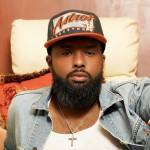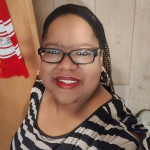In 2005, I had an HIV-positive boyfriend. I was HIV negative. He told me his status the day we met, and I felt honored that he shared such an intimate thing with me. Far from being an obstacle, it made him more interesting to me, and until today, without doubt, he was the person I loved the most. I was never scared of having sex with him. I thought I was well-informed on HIV, but nine years later, life proved me wrong.
The last time I tested HIV negative was in June 2014. At the end of that summer, a condom broke during a casual sex encounter. I immediately asked the guy if he was HIV negative because I knew I could go to a hospital to get PEP [post-exposure prophylaxis] before 72 hours passed. He reassured me that he tested negative five days before and that I shouldn’t worry because he always used condoms. He gave me his phone number, and because we talked about it for an hour, I made the decision that I didn’t need to go to a hospital and take PEP for a month. That was a big mistake.
What I learned is that you don’t get HIV from people who are diagnosed with HIV and take their meds and have an undetectable viral load. You do get HIV from someone who is not aware that they are HIV positive. The guy I had sex with probably didn’t always use condoms. Even though he tested negative five days before we met, he also happened to be in the window period of exposure with a huge viral load that increased the chance of transmission to me exponentially.
It was bad luck and a wrong decision on my part.
But things got worse. Totally unaware of my new status, I started dating a man I’d met two years earlier. Destiny brought us closer. We started sleeping together and fell in love. When I realized I really liked this guy, I decided to get tested for HIV again in order to go a step further with him in our relationship. I was fearless, not even thinking about that accident with the condom.
When they gave me the news, I was in shock. The words HIV positive were the last thing I expected. How could this happen? Then, suddenly, a flashback of the condom incident came to my mind, and bingo! That’s how it happened. I was more worried about how to tell my current boyfriend than of the consequences of being HIV positive. My real worry was that the person I was starting to fall in love with would reject me. I knew it would break my heart because I really wanted to be with him.
After two sleepless nights, he called to find out what was wrong with me, and I told him. His first reaction was awesome. He said it was irrelevant. He stayed with me and held me. His words were very comforting. We made plans for the following summer. He wanted to fill a wall of my room with his drawings. He sang songs to me in the car and in the shower. He introduced me to his sister. I didn’t even remember that I was HIV positive. I was in love.
Unfortunately, I didn’t read the contradictory signals that came with the bliss that I felt. After my diagnosis, we never had sex again. There was lots of kissing and holding but no sex. He never went with me to a single doctor’s appointment. He would change the subject whenever I mentioned my HIV. He ended up dropping me a month after my diagnosis, when I least expected it. Out of the blue, he vanished.
It was traumatic to deal with a broken heart and my new HIV status. I felt the deepest loneliness I’d ever experienced, and I fell into depression. I could not accept the rejection. I felt I’d lost the love of my life because of HIV.
I was wrong. He was not the love of my life. It took me some time to understand that. The only good thing that came from our relationship is that I decided to get tested and that I was diagnosed early. I started treatment and three weeks later, I was undetectable.
There are two lessons that I took from these events in my life.
The first thing is: You cannot get HIV from a person who is on treatment and is undetectable. Undetectable means untransmittable. You get HIV from people who are unaware of their status.
The second thing: If you happen to get HIV, it may hurt in the beginning, but after some time, it will make you a much bigger person. It will also be a powerful tool to exclude from your life people who are not worth your time and to include the people who are. Surround yourself with quality people because you don’t deserve any less than that.
And remember this: Love is not defined by your status. HIV does not define who you are.
What three adjectives best describe you?
Strong, empathic and close.
What is your greatest achievement?
Getting endorsements to Prevention Access Campaign from Spanish organizations, such as Fight AIDS Foundation, BCN Checkpoint, Apoyo Positivo, Afirma’t LGTB, COGAM, Sandoval Medical Center and Imagina Más.
What is your greatest regret?
Probably giving the best of myself to the wrong people.
What keeps you up at night?
Insomnia.
If you could change one thing about living with HIV, what would it be?
Stigma.
What is the best advice you ever received?
You just need time.
What person in the HIV/AIDS community do you most admire?
Bruce Richman, of Prevention Access Campaign.
What drives you to do what you do?
Ending stigma.
What is your motto?
U=U.
If you had to evacuate your house immediately, what is the one thing you would grab on the way out?
Laptop.
If you could be any animal, what would you be? And why?
A Belgian shepherd.







1 Comment
1 Comment